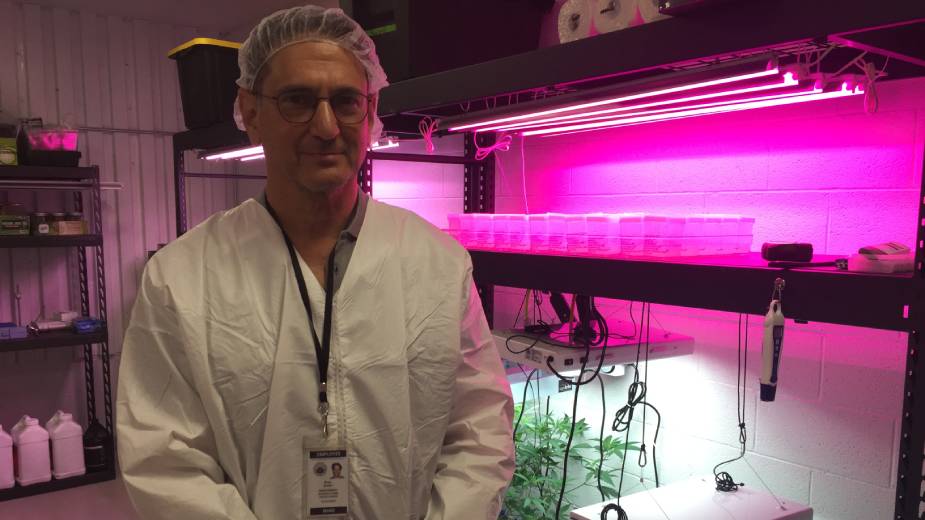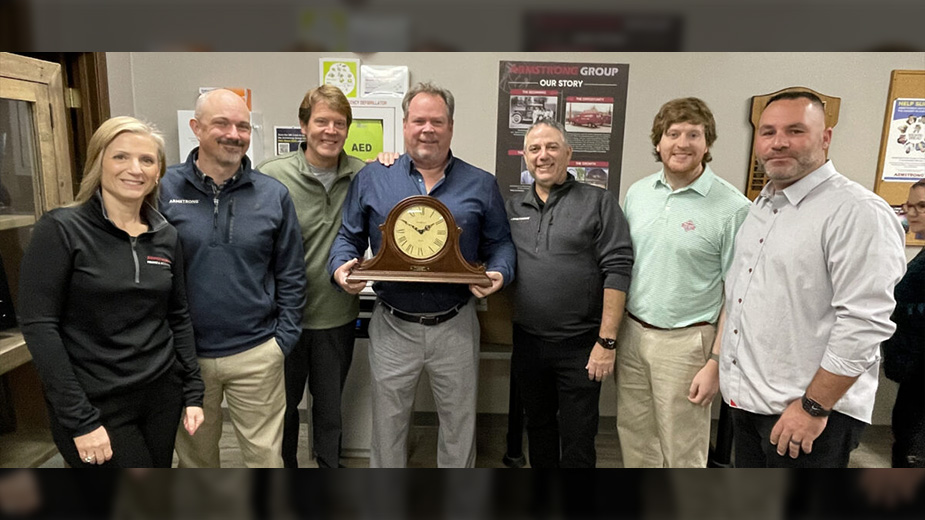Riviera Creek Expands, Introduces Innovations
YOUNGSTOWN, Ohio – A major expansion of the region’s first medical marijuana growing complex is now finished, allowing more space to cultivate its products.
And should a ballot initiative to legalize adult recreational marijuana in Ohio succeed – and voters approve the measure in November – it could mean even additional growth for Riviera Creek LLC and the entire industry.
“If the demand is there, we’ll continue to expand,” said Brian Kessler, Riviera Creek’s chairman. “We’re cautious. We just do it when we know it’s there.”
Earlier this month, the Coalition to Regulate Marijuana Like Alcohol submitted more than 222,000 signatures supporting a proposed law that would allow adults 21 years or older to buy, possess and grow cannabis. The total is nearly twice the minimum number of signatures needed to place it on the ballot. Election officials are now vetting whether the signatures are valid.
“That process will unfold in the next 30 days, roughly,” he said.
Kessler said that it’s been his position since he first became involved in the industry 10 years ago that the government should oversee the safe production and regulation of cannabis.
“Anything that is consumed in America is regulated and tested,” he said. “The reality is, cannabis is consumed on a daily basis in this country as much as Budweiser.”
However, since recreational use is prohibited in Ohio, people are forced to purchase marijuana in other states where it is legal and bring it back into the state illegally. Or they turn to the risky and illegal underground market.
“You don’t know what you’re buying,” Kessler said, noting unregulated marijuana could be laced with dangerous substances.
He compares legalizing marijuana to an array of snacks in small bags on a table before him, all of which carry labels identifying the product’s ingredients and government declarations that it has been tested and is safe to consume.
The same rigorous oversight should also be applied to marijuana use, Kessler said. “If it’s tested and regulated, now all of a sudden the consumer who’s purchasing it has some comfort level that it won’t hurt them,” he said. “That’s all I care about. That makes sense.”
Daniel Kessler, Riviera Creek’s CEO, said the state would benefit as well, since the product would be taxed at 10%. “At this point, there’s no benefit with the illegal markets,” he said.
To date, 23 states, plus Washington, D.C., and the territory of Guam, have approved laws permitting the recreational use of marijuana.

“We just heard yesterday, in Michigan, the No. 1 store is on the border of Ohio,” Brian Kessler said. “People are driving there and bringing it back here illegally. So Michigan gets the benefit of the tax dollar.”
Kessler noted that Missouri is projecting its adult marijuana legalization program would generate $1 billion of revenue during its first year. Ohio, with twice the population of the Show Me state, could conservatively boast revenues between $1 billion and $2 billion annually.
“The tax dollars coming off of that should be hundreds of millions of dollars,” he said.
Should the ballot issue pass in November and adult recreational use becomes law, then Riviera Creek would apply for a recreational license, just as it had done to procure a medical marijuana cultivation and processing certificate, Daniel Kessler said.
“We’ll be able to supply the medical market and the adult use market,” he said. The medical market, he noted, is usually discounted for patients when compared with the recreational market.
“Our job is to service both,” Brian Kessler added.
As for Riviera Creek, the company recently completed a significant expansion that doubles its cultivation space, he said. Still, the recent expansion leaves the operation short of the 25,000 square feet approved by the state for a Level I cultivation site, he said. That milestone might take another year and a half or more to achieve.
As such, Riviera Creek now produces “thousands of pounds” of medical marijuana per year, Kessler said, although he acknowledges the amount is less than 10,000 pounds. Three years ago, “we were doing hundreds,” he added.
Riviera Creek’s operation includes testing labs, clean rooms, dryer rooms, a processing component and its cultivation operations. The plants are cultivated using just water, nutrients, light and air, he said.
The market has encouraged Riviera Creek to become more creative when it comes to engaging and interacting with customers, the Kesslers said.
Among Riviera Creek’s newest innovations is a loyalty program that the company patented, Brian Kessler said. “We’re the first company in the state – actually in the country – that is creating a loyalty program by the brand and manufactured product, not just the store.”
As it stands, medical marijuana dispensaries use loyalty programs, but not brand wholesalers such as Riviera Creek. “No one’s done it for the whole state.”
Each Riviera Creek product includes a loyalty card in the bag. The card can be scanned on an iPad or computer, which takes you to a rewards program where a patient builds points toward a discount on their next purchase.
“It’s pretty cutting edge,” added Daniel Kessler. “Having this back-end technology is really innovative. It creates a real relationship between the patient and the brand.”
A second innovation that Riviera Creek has devised is a tube-like dispenser that contains infused cannabis, Brian Kessler said. The ready packaged cannabis comes in smaller doses – one gram units, since it is sold as a concentrate – and patients are able to purchase a single unit for as little as $12.
“The price point is a lot lower and allows the patient to buy less,” Daniel Kessler said.
The cannabis is easily poured into a vape pen without any additional preparation by the patient, Kessler said.
Yet Kessler acknowledges any growth and expansion must be carefully measured by demand in the market. As for Ohio, patient registration and medical marijuana usage has leveled off since the state began sales in April 2019.
According to the state, there were 370,287 registered patients in the program as of May 31, while 174,591 held an active registration and active recommendation. As of June 26, the industry in Ohio had sold $1.37 billion worth of product since April 2019.
“The patient count has flattened out and has definitely created challenges for business in general,” he said. “We work really hard to give reasons for our patients to really have our product, so we’re doing OK.”
Pictured at top: Brian Kessler, chairman of Riviera Creek.
Copyright 2024 The Business Journal, Youngstown, Ohio.



